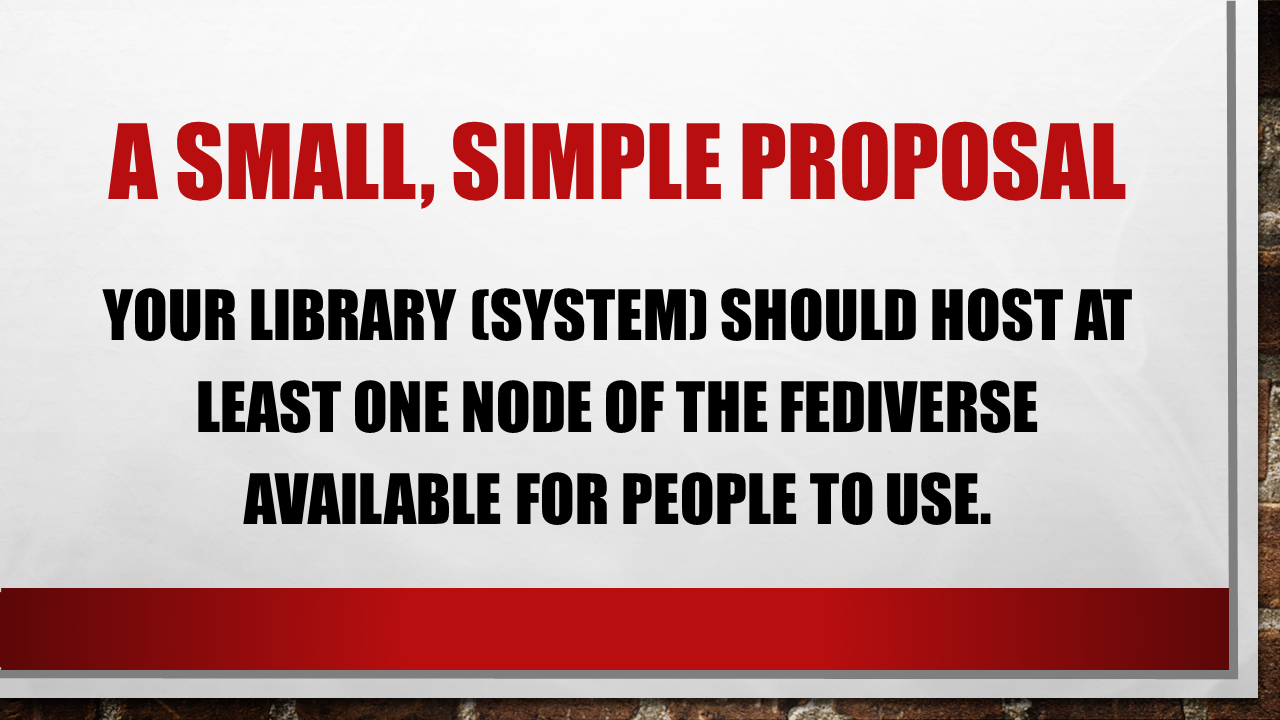
I'd like to start this talk with an idea that I think is brilliant and would do good things for raising the profile of both public libraries and free and open source software. As I'm based in the U.S., this talk assumes the existence of tax-funded libraries existing as part of infrastructure. If this isn't the case for you, if you have it, substitute the appropriate public institution that you have locally.
I'd like to see every public library host at least one node of the Fediverse. It could be any of the possible packages out there, whether it's talking Zot, OStatus, or Activitypub, and could be anything from microblogging to media sharing. [Since I'm talking to people who understand what the Fediverse is by saying it, we skipped over the explaining where we talk about the Fediverse as a series of independent applications that share communication protocols, and thus can interact with each other. I go into a little more detail about that in the A-Side of this presentation, "Okay, Libraries, Let's Destroy Facebook!" that I did for the Washington Library Association Conference in 2022.]
More realistically, however, given the constraints of budgets and staff, public libraries are probably going to gravitate toward primarily text-related services, so the talk is going to focus more on those than on media sharing more widely, as cool as I think it would be for a public library to have the budget and bandwidth to host Pixelfed, Funkwhale, or PeerTube instances.
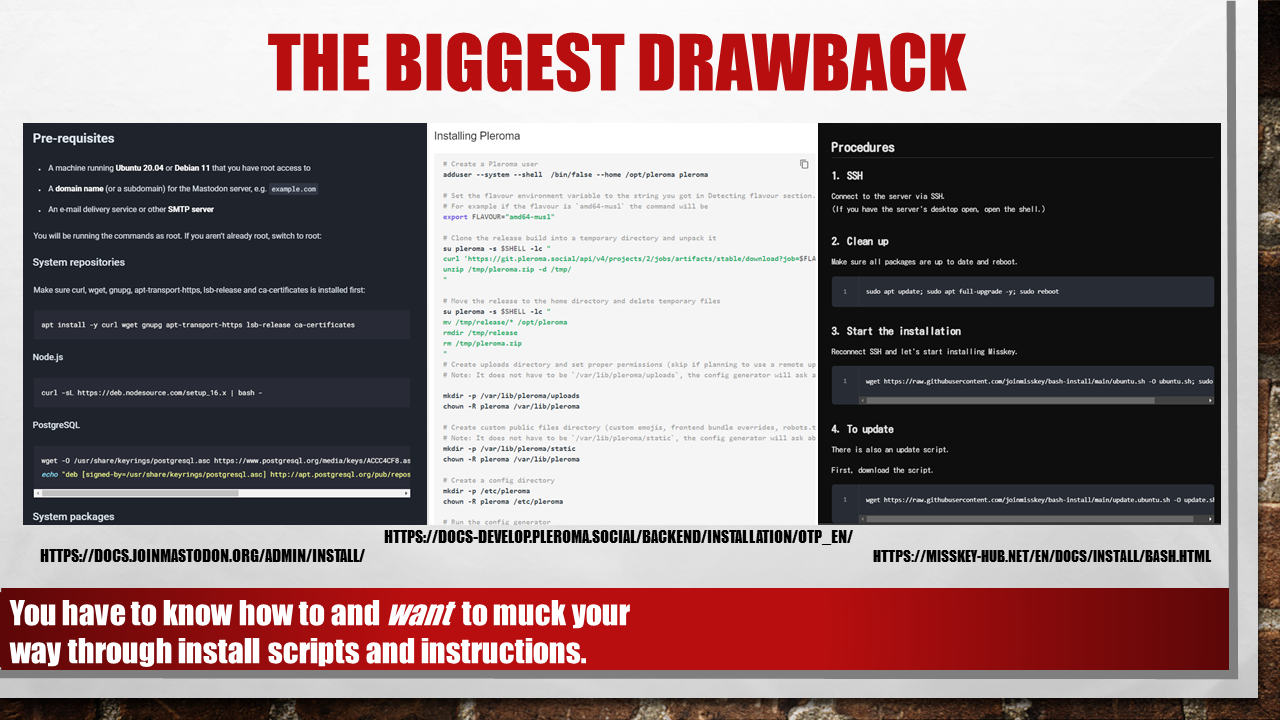
Now, one of the touted benefits of decentralized social media is that anyone can spin up their own instance and exert full control over it, rather than being beholden to some corporation and its potentially vague or inconsistent moderation policies or to copyright strike-bots that take forever to appeal the decisions of.
However, as you can see from these screenshots of the installation instructions of three ActivityPub-based microblogging services [that would be the install pages of Mastodon, Pleroma, and Misskey], the promises of freedom and control make certain assumptions about the people who will be exercising that freedom and control, namely:
- They have access to a Linux machine,
- They are comfortable using the command line,
- They are willing to get a domain name for themselves,
- They actually want to go through the process of installing, maintaining, and possibly customizing an instance.
Those are some fairly steep startup costs, and that's assuming that everything executes correctly in the install process and there's no troubleshooting required to stand the instance up.
If a person dosen't want to learn the technical aspects of server administration and use of the command line, the other option offered to them is to pay someone else to do the technical administration and possibly pay someone else to do any coding or customizations for them. This is not a bad solution, but not a lot of people want to pay for a domain name and an additional amount per month of hosting fees just because they're curious about what it would be like to run their own social network.
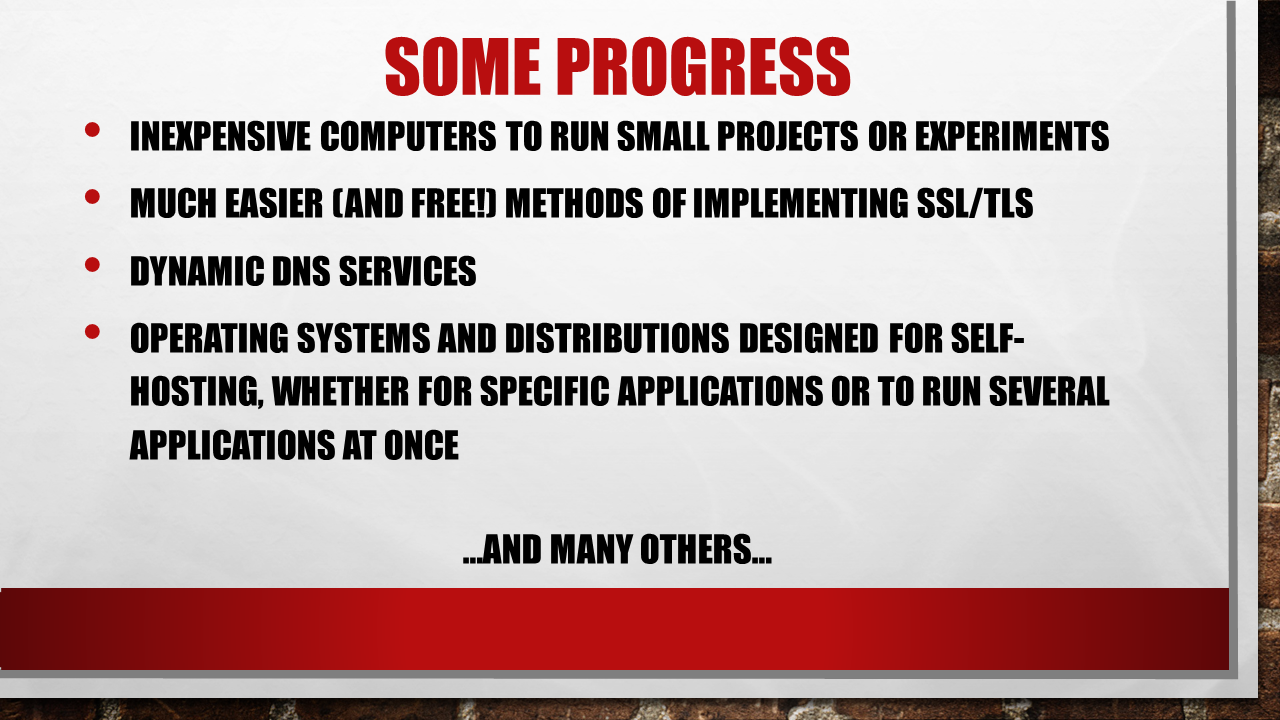
There is some progress on making running your own social network within the reach of a curious person who wants to try it out:
- Computers have gotten inexpensive, and some instance software touts low resource requirements, such that a spare computer, or a hobbyist single-board computer, is enough to use as a platform for experimentation.
- The process has been vastly de-arcaned for someone to get a certificate and make HTTPS available, and at least one Certificate Authority offers free certs to anyone who wants HTTPS.
- Dynamic DNS resolvers can create a consistent single domain name even for a hobbyist whose residential IP address gets shuffled around routinely. [A comment in a different context noted that many residential Internet Service Provider contracts im the United States specifically prohibit hosting services from your home connection. Presumably, some providers are more or less vigilant about this or may not care unless the bandwidth used starts becoming noticeable, but it's worth noting that hobbyists using their current connections may find themselves slapped with an Acceptable Use Policy violation even if the social they're running from their basement doesn't do a whole lot in traffic.]
- Entire distributions of Linux exist now to try and make the process of deploying servers and web applications much more simple to the hobbyist or the experimenter. [For example, YUNoHost.]
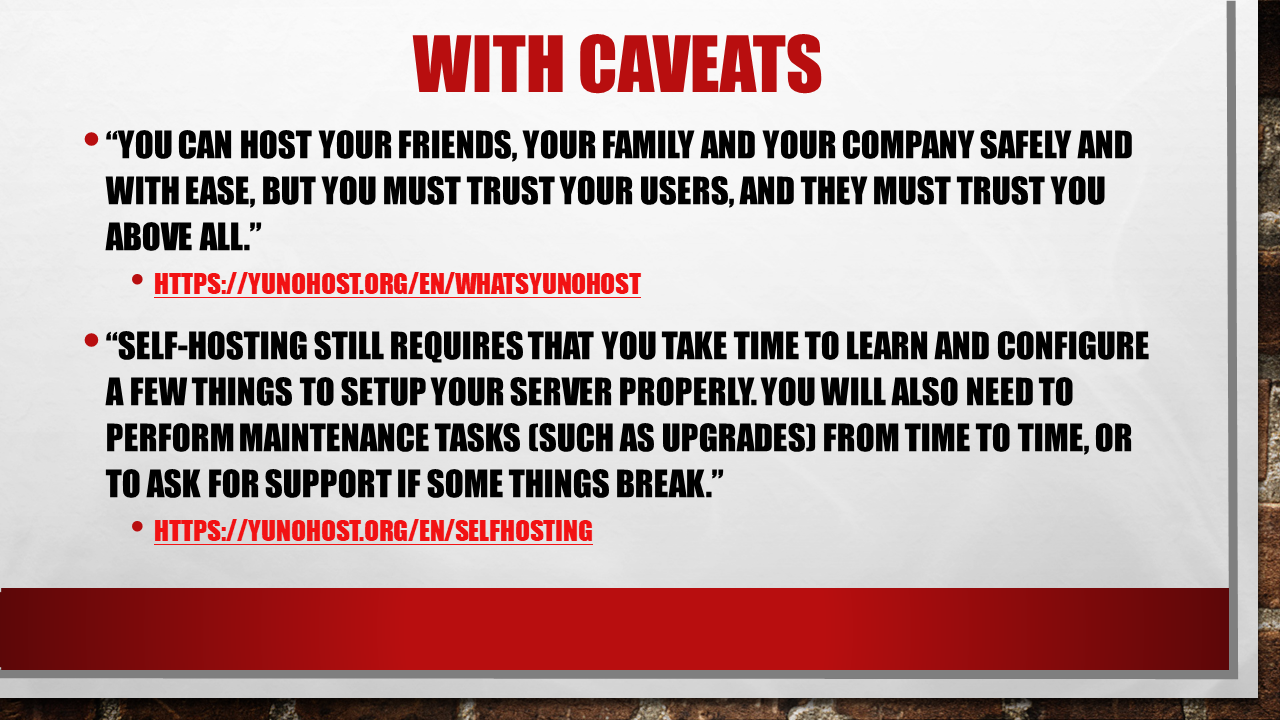
There's more work than just this on trying to make the process simpler, but even with all of this work, there's still some caveats involved. A lot of these projects are meant to be small-scale between people who trust each other (and who trust that the admin setting things up isn't going to use their admin powers for nefarious reasons), and while many of these projects aim to remove most of the heavy lifting and configuring through the use of sensible defaults, it doesn't mean they've achieved secure, self-updating, plug-and-play systems that Just Work. There's still a startup cost involved.
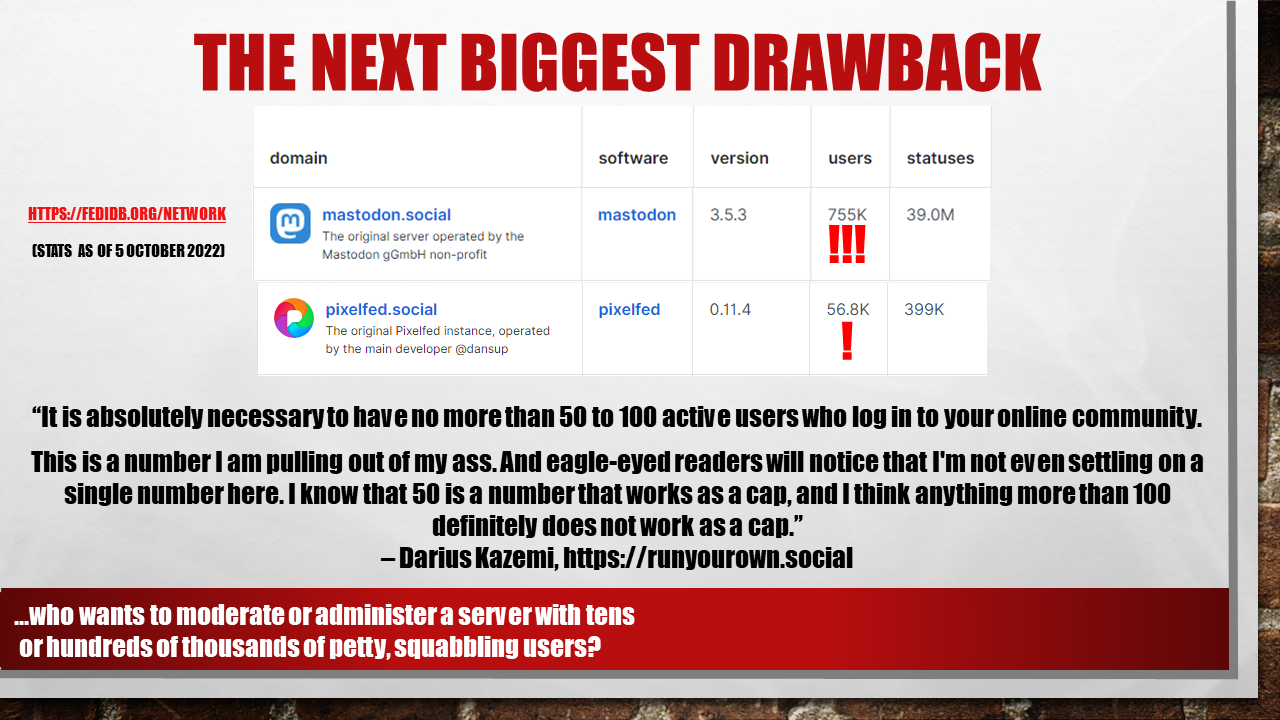
The other thing that discourages people from spinning up their own instances is that being an administrator and moderator means potentially having to deal with other people. Some people have friends who will want to do that, others might have a governance system ready to deploy, but ultimately, a popular instance can quickly turn from a fun project into a nightmare of escalating costs and of escalating tensions. Darius Kazemi's "Run Your Own Social" suggests 50-100 people as a maximum amount of users on your instance, with the implication that the actual optimal number might be smaller still. To achieve that kind of decentralization goal, the number of instances would have to skyrocket, and people would have to want to move from big instances to small ones, and possibly support their server costs in the process. To an audience that is used to being the product, where they give data in exchange for a service, or that doesn't have much to throw at a crowdfunding account, starting to pay for what had been previously free is probably not going to go over well, no matter what kind of bulletproof appeal to their morals or ethics appears. [FediDB's network page showcases how the main or first instances of certain protocols, like Mastodon or Pixelfed, have quickly grown to have tens of thousands or hundreds of thousands of users. Who wants to moderate or administer a server with that many users on it (and especially for the likely small amounts of support money that will be coming in to defray costs)?]